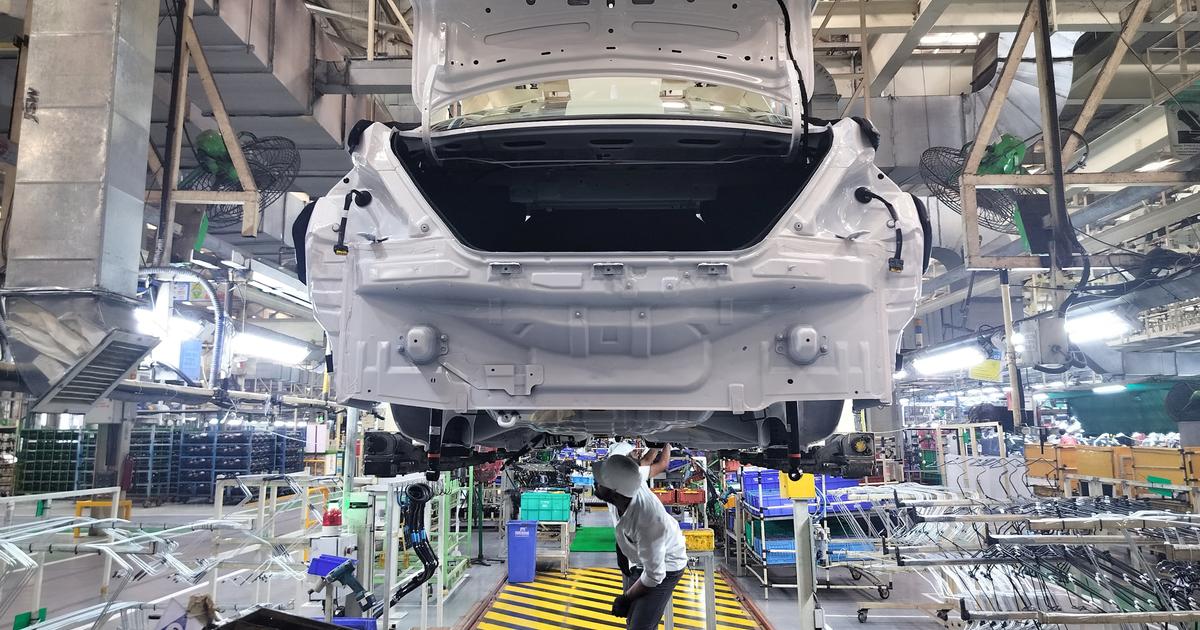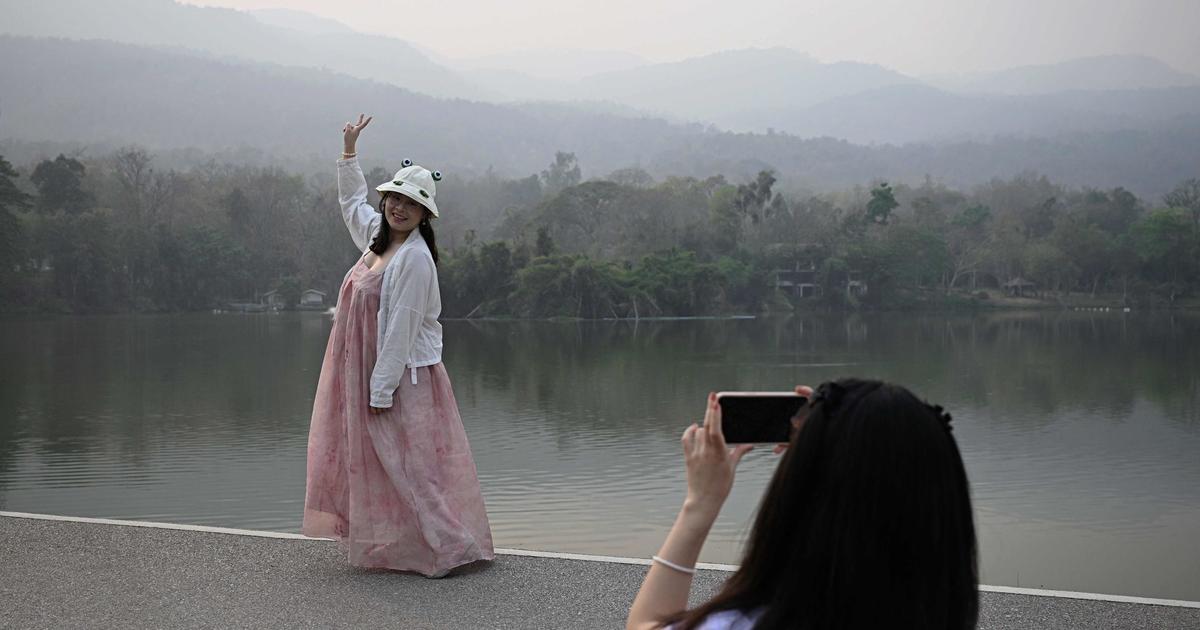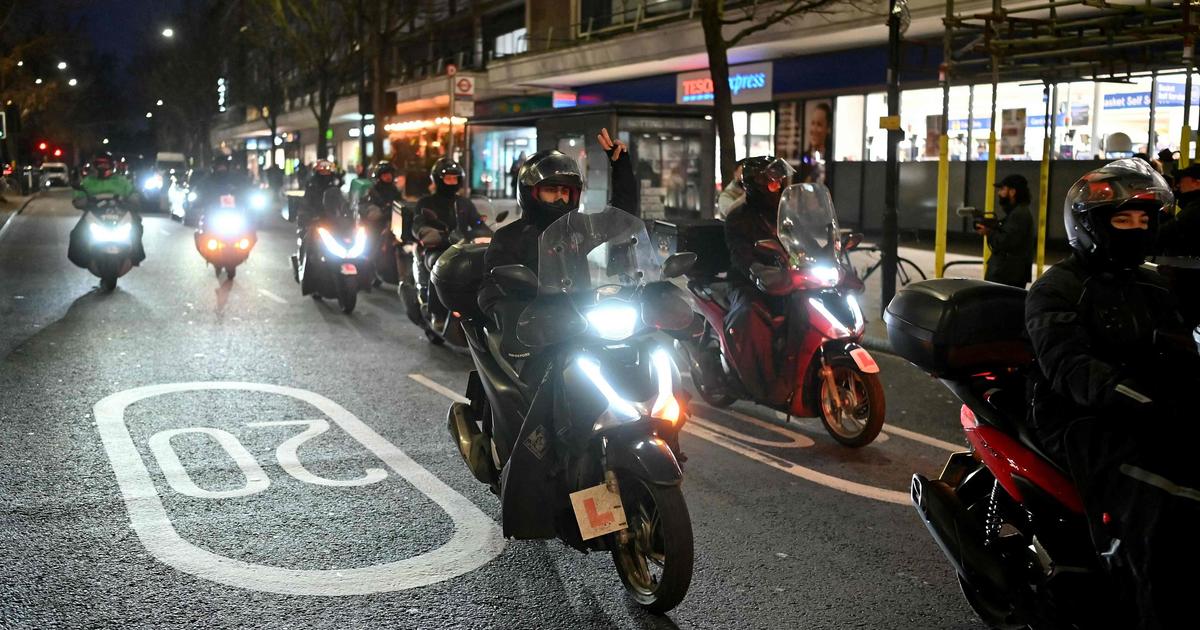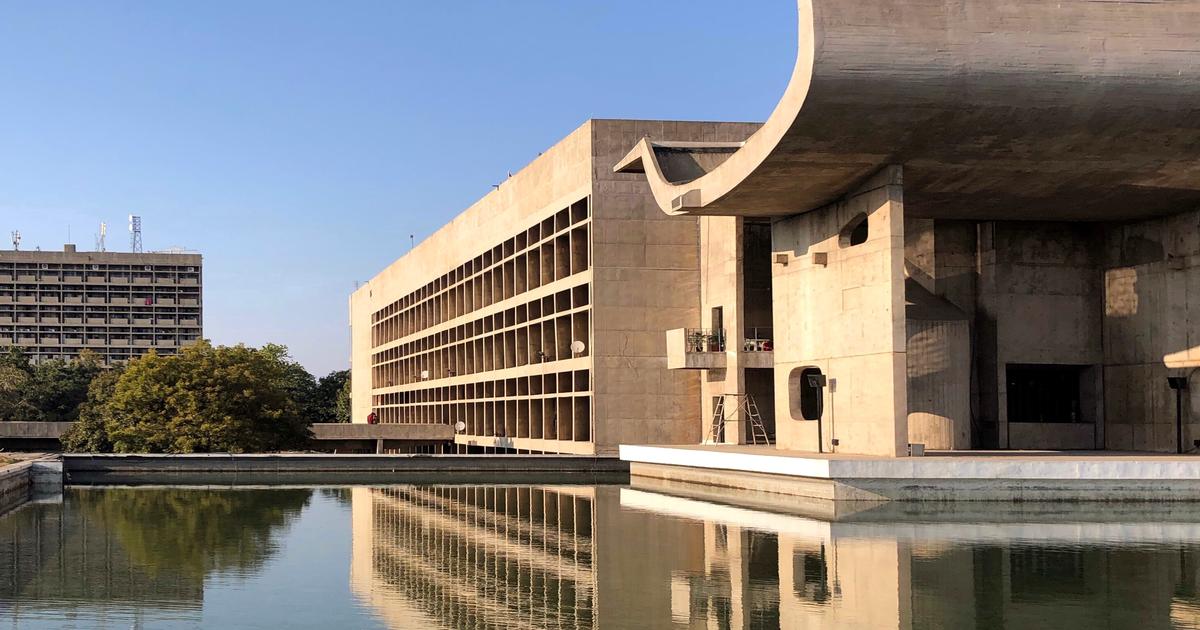Dangerous pollution alerted in New Delhi 0:42
New Delhi (CNN) -
Gulpreet Singh begs for food on a dirty hemp mat spread on the sidewalk outside New Delhi's South Campus subway station.
Like millions of Indians who survive on alms or wages, this 84-year-old man says he has no choice but to be outside, breathing the thick smoggy air in the Indian capital.
"I come here and wait. Sometimes people give me food," Singh says, his voice cracking from the noise of motorcycle taxis and smoking cars a few yards away.
New Delhi is often among the most polluted cities in the world, with air pollution reaching "dangerous" levels in early November, according to India's National Air Quality Index (ICA), which tracks the presence of harmful particles in the air.
But some New Delhi residents have become so used to the stale air that it is part of their daily lives - they hardly notice it, they say.
Others say it makes them sick.
Gulpreet Singh orders food in front of New Delhi's South Campus Station.
It is difficult for him to breathe due to the contamination.
Suffocated by smog
A police officer directing traffic at one of New Delhi's busy crossings says pollution levels have become "unbearable" this winter.
advertising
"I take off my mask because I have to blow the whistle to stop traffic, but it has been horrible," says this agent, 48, who did not reveal his name because he is not authorized to speak to the media.
Exhaust gases flow from the rows of vehicles that surround it;
He says he's having a hard time catching his breath.
"My eyes hurt. It's hard for me to breathe. It's not easy," he says.
Social worker Neelam Joshi, 39, says she feels the pollution every time she leaves her home to take the train to work.
"When you leave the house in the morning, it's the first thing that hits you," Joshi said.
At the end of the day, he says that his body seems to have adapted, but the next day, everything happens again.
"In the last six years that I have lived in Delhi, pollution has never been reduced," he says.
"It just increases every year. Every year it reaches a different level, and during festivals it always gets worse."
Amanpreet Kaur, 28, a flight attendant from New Delhi's Rohini neighborhood, recently flew on a flight from the United States and was amazed at the difference in air quality.
"When I landed in India, after my flight from the United States, it was horrible. I couldn't stop coughing," he said.
Kaur says the smog is so bad that it can be seen at night as a dirty haze around streetlights and car headlights.
"When the sun goes down, all you see is smog, just smog around it," Kaur said.
"It is very dangerous to live in Delhi."
Smog covers the Government of India office on November 20, 2021, in New Delhi.
"My right to breathe"
Aditya Dubey, an 18-year-old environmental activist, has been pushing for urgent action against New Delhi's pollution for two years.
Every year, the city is ravaged by a cloud of cloudy smog that hurts the throat, but it's worse in winter, when low temperatures and slowing wind speeds trap airborne particles for longer.
"Winter has turned into torture and every day seems like punishment," says Dubey.
"I have a burning sensation in my eyes and they start to water. I feel short of breath."
Last month, New Delhi's Chief Minister Arvind Kejriwal tried to control pollution levels by banning fireworks during the festival of lights called Diwali, but the celebrations went smoothly, in most cases.
Diwali smoke was exacerbated by increased burning of crop residues on surrounding farmland.
On November 5, most places in New Delhi had an ICA above 500, the highest level on the scale.
At that moment, Dubey had had enough.
The activist filed a petition with the Supreme Court for his "right to breathe" to be protected.
On November 15, the court ruled in his favor and ordered the central government to do more.
Subsequently, schools were closed, non-essential traffic was suspended, construction projects were halted, and six of the eleven coal plants were ordered to close until the end of November.
Construction projects resumed on Monday as New Delhi saw a marginal improvement in air quality.
But for many, the damage had already been done.
Morning haze envelops the skyline outside New Delhi, India, in October 2020.
The "silent killer"
Last year, nine of the ten most polluted cities in the world were in India, according to the IQAir watchdog network.
22 of the 30 most polluted cities in the world are in India
According to the World Health Organization (WHO), it is estimated that air pollution causes 7 million premature deaths a year worldwide, mainly as a consequence of the increase in mortality from cardiovascular diseases, cancers and respiratory infections.
Stale air could be reducing the life expectancy of hundreds of millions of Indians by up to nine years, according to a recent study by the University of Chicago Energy Policy Institute (EPIC).
The study also revealed that each and every one of India's 1.3 billion residents endures average annual pollution levels that exceed WHO guidelines.
In 2019, the central government of India announced a national clean air campaign, aiming to reduce particulate pollution by up to 30% by 2024. Specific plans were created for each city;
in New Delhi, those plans include measures to reduce road traffic, burning and dust on roads, and to encourage the use of cleaner fuels.
But in recent years, India's pollution problem has worsened, in part due to the country's dependence on fossil fuels, and in particular coal.
Air pollution would take millions more years off their lives than smoking, war or HIV / AIDS
At the recent COP26 climate summit in Glasgow, India was one of a group of countries that pushed for a last-minute amendment to the deal to "reduce" rather than "eliminate" coal.
In New Delhi, noxious air claims tens of thousands of lives each year, according to analysis of IQAir data by Greenpeace.
But despite the worsening air quality, some New Delhi residents have become so used to it that they seem not to notice.
Many roam the streets without a mask and have developed a general complacency towards the pollution levels.
Omprakash Mali, a gardener, 50, says that air pollution does not affect him or his work.
"We work with mud and dust as a gardener, so I don't feel anything extra," he said.
"I think the government's top priority should continue to be covid-19. Pollution occurs every year."
Shesh Babu, 18, a manual worker, said he "doesn't really care" about New Delhi's thick smog.
Your priority is making money.
Dubey, the activist, says that air pollution is considered an "elitist" issue.
"Air pollution is a silent killer," he says.
"There is a lack of awareness. People do not realize how serious it is."
Air pollution

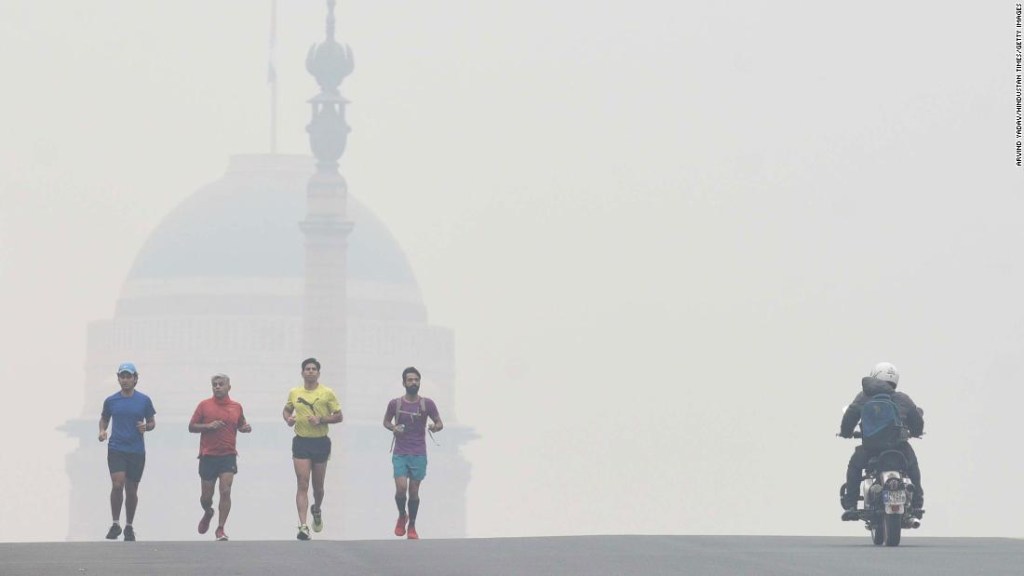

/cloudfront-eu-central-1.images.arcpublishing.com/prisa/VPFDJ6LOFBD4DJB77PGQNQCUCE.jpg)
